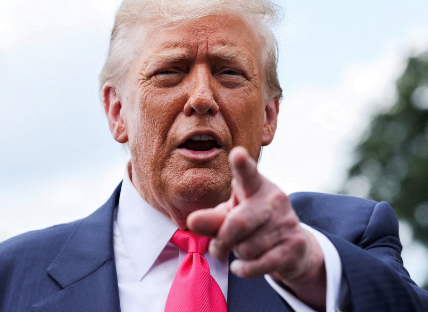Congressional Republicans are reviewing former President Donald Trump’s latest request to slash $9.4 billion from federal spending. While the GOP broadly supports cutting government costs, party leaders are considering adjustments to Trump’s proposal amid internal divisions and growing scrutiny from Democrats and watchdogs.
The Proposal: Where Trump Wants to Cut
Trump’s plan targets a mix of discretionary spending areas, including foreign aid, environmental programs, and select social services. His team argues these cuts are necessary to curb what they call “reckless Washington spending” and redirect funds toward “America First” priorities like border security and military modernization.
However, the scale and focus of the cuts have sparked debate even within Republican ranks.
Republicans Consider Revisions
According to congressional aides, GOP lawmakers are examining which parts of Trump’s proposal to keep, alter, or reject. Some moderate Republicans want to shield certain domestic programs, especially those tied to education, rural infrastructure, and veterans’ services.
Others in the party’s conservative wing are pushing for deeper cuts, particularly in foreign aid and federal regulatory agencies. Negotiations are ongoing as House and Senate leaders try to balance fiscal discipline with political optics especially in a pre-election year.
Democratic Opposition Mounts
Democrats have strongly criticized the proposal, calling it an attack on working families and vital services. Senate Majority Leader Chuck Schumer labeled the plan “extreme and harmful,” warning that it would undercut efforts to support climate action, public health, and economic recovery.

House Democrats are preparing countermeasures and messaging strategies, arguing that Trump’s proposal shifts the burden onto vulnerable communities while offering little in return.
A Test of Party Unity Ahead of 2024
The debate over Trump’s $9.4 billion spending cuts is also a test of GOP unity. With Trump leading the 2024 Republican field, lawmakers are weighing how closely to align with his economic vision. Some see the proposal as a campaign tool to energize fiscal conservatives, while others fear political backlash if essential services are trimmed.
The final outcome could shape how Republicans position themselves on economic stewardship and federal spending in the upcoming election.
As Republicans deliberate over Trump’s $9.4B spending cut request, the party finds itself balancing loyalty, governance, and public sentiment. Whether they fully endorse the plan or make substantial revisions, the debate marks a pivotal moment in GOP fiscal policy and a sign of how Trump continues to shape the Republican agenda.



